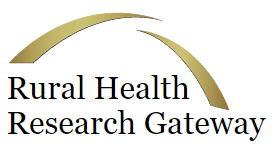December 19, 2024

Funding Opportunity: Rural Health Network Development Planning Program, HRSA-25-037, Apply by February 19
The Rural Health Network Development Planning Program supports the planning and development of rural integrated health care networks with specific focus on collaboration of entities to establish or improve local capacity and care coordination in underserved communities. Specifically, the program uses the concept of developing networks as a strategy for linking rural health care network participants together to achieve greater collective capacity to overcome local challenges, expand access and improve the quality of care in the rural communities these organizations serve.
The program helps network participants work together on three legislative aims:
- Achieve efficiencies
- Expand access to, coordinate, and improve the quality of basic health care services and associated health outcomes
- Strengthen the rural health care system as a whole
The intent is that rural health networks will do the following:
- Expand access to care,
- increase the use of health information technology,
- explore alternative health care delivery models, and
- continue to achieve quality health care across the continuum of care.
Examples of previously funded projects under this program can be found online at the Rural Health Information Hub.
Eligible Applicants
- Nonprofits having a 501(c)(3) status with the IRS, other than institutions of higher education
- City or township governments
- Private institutions of higher education
- For profit organizations other than small businesses
- Nonprofits that do not have a 501(c)(3) status with the IRS, other than institutions of higher education
- Native American tribal governments (Federally recognized)
- State governments
- Independent school districts
- Native American tribal organizations (other than federally recognized tribal governments)
- Special district governments
- County governments
- Public and State controlled institutions of higher education
Click Here to See Examples of Previously Funded Projects
Click Here to Access Evidence-Based Toolkits for Rural Community Health
Click Here to Learn More and Apply





